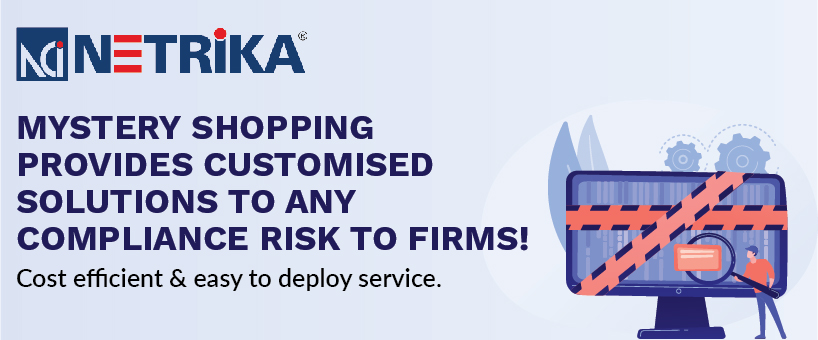Mystery Shopping: Is Mystery Shopping A Valuable Tool?
- June 30, 2021
- Posted by: Netrika
- Category: Forensics, Investigations

Sticking to the rules and regulations of a firm should be an employee’s priority, without focusing on the industry they work for, because norms are norms, and one must stick to them! While violation of rules can have its consequences. Mystery shopping is one such investigation to see whether the company and its employees are adhering to the rules and regulations or not.
The market research method is generally used to measure the quality of customer service, sales, job performance, regulatory compliance, or to gather specific discrete information about a market or company, as the investigators disguise themselves as customers. After measuring the quality of the company and its employees’ performance, the mystery shoppers identify the gaps in the system of a firm and help in the mitigation of those risks. The mystery shopper collects data related to the quality of products or services of a company. However, the mystery shopper should strictly have no affiliation to the company being researched and the data should only be used to improve compliance in the company and not withheld against any employee of the organisation.
Mystery shoppers choose the methodology to tailor business needs and bring quality to the business and work as per the objectives set out in the engagement letter. It can vary from observing the skills of employees in serving, tidiness, and cleanliness of the store or office, or the skills of the employees to sell or the quality of the product or to see whether there is any security drawback, just in case if there is any fraud, theft, or any risk related offence at the place.
Mystery shopping is a valuable tool that is very cost-effective & easy to deploy among many other sophisticated risk management & auditing tools to identify risks of an organisation. While audits are more formal and informed, mystery shopping is a discrete activity where no one is aware of this activity, acting as a surprise audit for the employees. Mystery shoppers identify the strategic, operational, financial, and compliance risks to which the organisation is exposed.
After identifying the risk, using a critical scale that indicates the impact of financial risk, a strategical framework is formed. Developing a framework and methodology can help organisations determine the extent to which the risk-mitigating activities can reduce risks, ranging from testing and monitoring or employee training to work according to the company norms.
Disguised shoppers identify critical insights for internal auditors, risk managers, supervisors, and other stakeholders. The mystery shopping methodology helps to assess unknown risk issues ranging from steering of customers towards less suitable products or misrepresentation by Relationship Managers to, frauds like kickback arrangements, overcharging of customers, selling counterfeit products, im-personification, issuing fake/manipulated reports, fudging documents, etc.
Hence, a professional expert mystery shopping services firm should be carefully evaluated before onboarding not only on cost parameters but also on the parameters like the modus operandi, their coverage, their team qualifications, and experience. Know more
